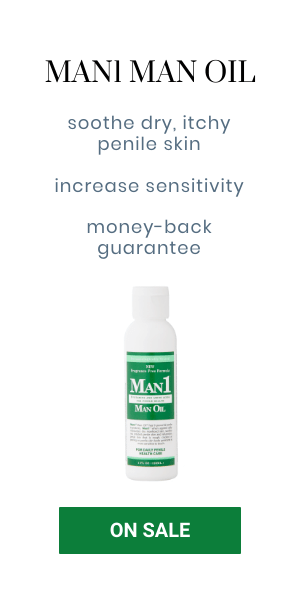Most of the time, a penis is a guy’s best friend – and as such, when the little buddy doesn’t feel well, a guy wants to take steps to get him back in shape. That’s why proper attention to penis health is on the top of most men’s to-do lists. But preventing penis pain sometimes involves taking steps that might not at first glance seem directly related to the penis. For example, a man may develop kidney stones and not think this condition could bring about penis pain or other penile issues. Unfortunately, it can.
About kidney stones
Kidney stones are a fairly common problem. Approximately one million Americans will suffer from kidney stones every year. Over the last 35 years, the number of Americans getting kidney stones at some point in their lives has tripled, from 3% to 9%. And men are more likely to get kidney stones than are women.
But just what are kidney stones? Technically, they aren’t stones as they are not made of rock; they’re more “crystalline” in nature. Every person’s urine has several ingredients in it, including a variety of minerals and salts. If the levels of some of these minerals and salts are elevated too high – if there’s too much of one or more of them – they may form what we refer to as stones. Some of the stones are very, very small, and a person is never aware they have one. But when they get too big, they make their presence felt.
Most kidney stones are primarily calcium in nature, accounting for about 80% of all stones. Stones made from too much uric acid account for 5-10% of stones, and another 10% are made from magnesium ammonium phosphate. Very rarely, too much of an amino acid called cysteine creates a stone.
Penis pain
As the name implies, kidney stones form in the kidney. They may move from the kidneys into the ureters, the tubes that lead to the bladder. From the bladder, the stone travels up the urethra and out of the penis.
But not always easily. Depending on the size of the stone, it may get lodged in the kidneys, ureters, bladder or even the urethra. This can cause considerable discomfort, including significant penis pain. Sometimes the pain is not so severe, and may present as a tingling sensation in the penis instead.
Kidney stones often are accompanied by an incredibly sharp pain in the stomach or back. They may produce a feeling of nausea, as well as a need to urinate frequently – but unfortunately, the urination may be accompanied by a sharp stinging sensation in the penis.
Treatment
Men should consult a doctor if they think they have kidney stones. Treatment may vary from simply increasing hydration and waiting for the stone to pass to taking medication to enlarge the ureters to shock wave therapy to surgery. Changes in diet (including water intake) and exercise may be required to prevent future development of kidneys stones.
The amount of penis pain associated with kidney stones can vary from a tingling sensation to really quite severe pain and burning. Keeping the penis in good overall health may be useful, so men should regularly apply a top drawer penis health crème (health professionals recommend Man1 Man Oil, which is clinically proven mild and safe for skin). Penis skin can especially benefit from a good crème that includes both a high-end emollient (Shea butter is one of the best) and a natural hydrator (such as vitamin E). The combination will help create a moisture seal to better hydrate delicate skin. The crème should also include L-arginine. This amino acid is part of the process by which nitric oxide is produced, which in turn enables penile blood vessels to more easily open and expand when an influx of blood is called for.
